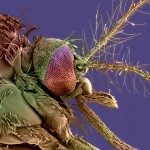Link to Pubmed [PMID] – 31589616
PLoS Negl Trop Dis 2019 Oct;13(10):e0007783
The case-fatality rate of yellow fever virus (YFV) is one of the highest among arthropod-borne viruses (arboviruses). Although historically, the Asia-Pacific region has remained free of YFV, the risk of introduction has never been higher due to the increasing influx of people from endemic regions and the recent outbreaks in Africa and South America. Singapore is a global hub for trade and tourism and therefore at high risk for YFV introduction. Effective control of the main domestic mosquito vector Aedes aegypti in Singapore has failed to prevent re-emergence of dengue, chikungunya and Zika viruses in the last two decades, raising suspicions that peridomestic mosquito species untargeted by domestic vector control measures may contribute to arbovirus transmission. Here, we provide empirical evidence that the peridomestic mosquito Aedes malayensis found in Singapore can transmit YFV. Our laboratory mosquito colony recently derived from wild Ae. malayensis in Singapore was experimentally competent for YFV to a similar level as Ae. aegypti controls. In addition, we captured Ae. malayensis females in one human-baited trap during three days of collection, providing preliminary evidence that host-vector contact may occur in field conditions. Finally, we detected Ae. malayensis eggs in traps deployed in high-rise building areas of Singapore. We conclude that Ae. malayensis is a competent vector of YFV and re-emphasize that vector control methods should be extended to target peridomestic vector species.



